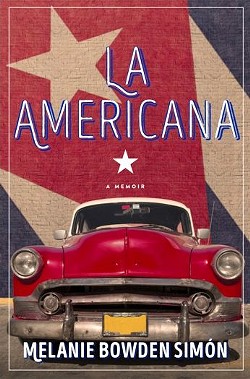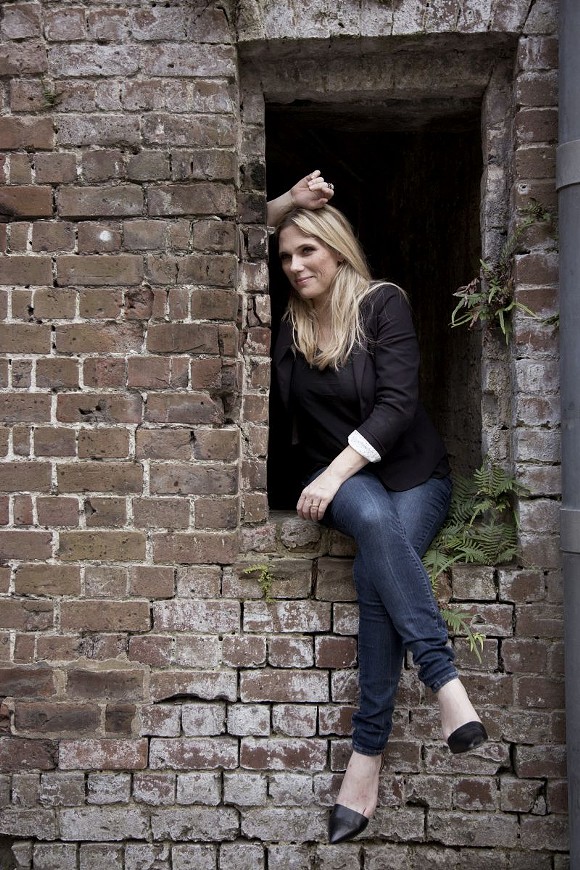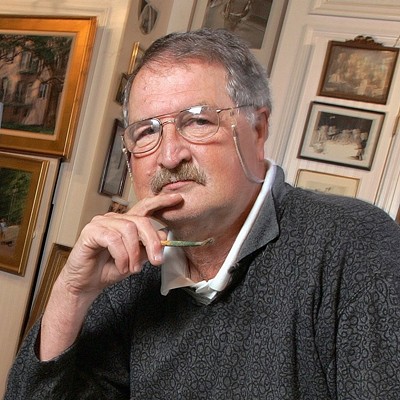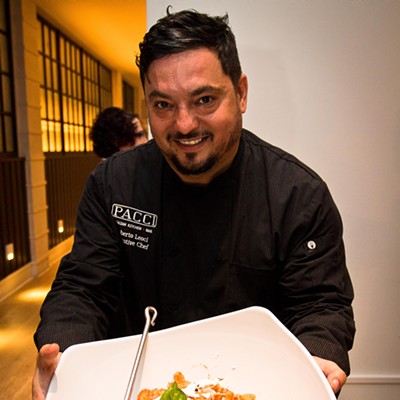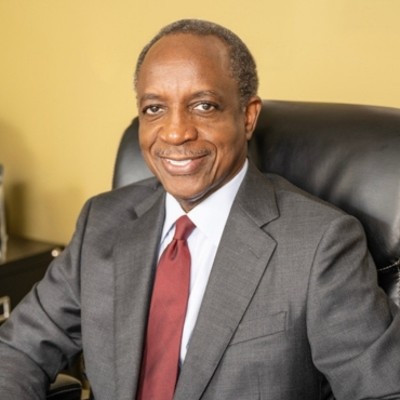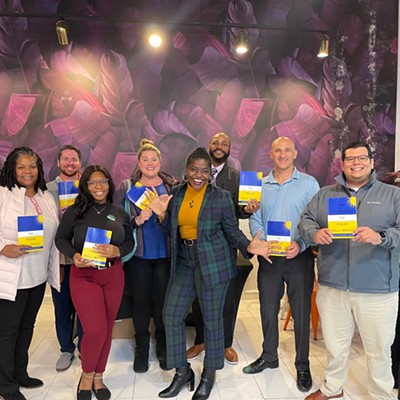IN April 2001, Melanie Bowden Simón stepped off a plane in Havana and straight into the taxi of the man of her dreams.
Of course, she didn’t know that yet. Wracked with grief over the recent death of her mother, the native Savannahian had bailed from her big-time New York magazine job to find solace in travel.
She chose Cuba because she loved the music, and its forbidden status was just on the thrilling side of dangerous—though she had no idea how much she would come to risk for Luis, the clean cut, kind taxi driver who really knew how to spin a girl around the dance floor.
Simón returned to Cuba again and again over the next few years, falling deeply not only for Luis but for his family and culture. Their love story was beset by myriad complications—linguistic, logistical, political—that she chronicles with wonderful wit and graceful honesty in her new memoir, La Americana.
Mouthwateringly descriptive (the food! the colors! the old cars!) and satisfying in its emotional pacing, La Americana brings a personal lens to Fidel Castro’s Cuba, a place trapped by tyranny yet stubbornly joyful in its traditions. Readers tour hidden locales and peek behind the closed doors of life under a Communist regime as the couple navigates their romance. Officially released this week by Skyhorse Publishing, the tale is already pinging several national summer reading lists.
Let’s just say it has a happy ending. These days, Melanie and Luis live with their three children in Savannah, where he owns a landscape business and she works as a freelance writer and at Armstrong State University’s public relations department. Melanie recently sat down to chat about the book, raising bicultural children and how much has changed in Cuba since she first stepped into that fateful taxi.
So why Cuba, why then?
Well, I was living in New York and my mom was sick with cancer. Things were so heavy, and I went to this little theater to watch “Buena Vista Social Club,” the documentary about Cuban musicians. The music—I’ve always loved Latin music—just made me want to stand up and dance. So I bought the CD and blasted it over and over in my tiny apartment, and I would just dance and dance and sing and sing. It became an escape for me, a happy escape.
When my mom died, I came back to Savannah. I tried to make it work in New York, but I was a wreck. My dad saw how I was grieving and said he would buy me a plane ticket anywhere in the world I wanted to go, so I said, “Cuba.” I was on a plane four months after the funeral. And my friend Cynthia was my only friend who was brave enough to go with me.
What were your first impressions?
It was hardcore. I really didn’t know anything about Cuba, other than the documentary I’d seen and what I knew about big bad Fidel Castro and the Bay of Pigs.
The country is physically stunning and beautiful, but the buildings are crashing down all around, you can’t believe people are living in them. It’s more open now, but 15 years ago it was scary and intense, the police presence, the pressure. Some people romanticize it, and there’s this sexy mystique about it. But it’s also a very difficult place to live.
One thing I learned and love about so many of the Cuban people is that they are very refined within this crazy system. They’re able to preserve dignity in a place where that’s really hard to do. You go into their homes, and they’re immaculate. They reuse everything and are so creative with everything they have.
Cubans out of necessity are very much living in the moment. Here, we’re doing retirement plans. There, the sense is very much of “have fun and do things now,” and I think Americans in particular really respond to that. It’s certainly what I responded to. I was so dejected when I arrived, and to see these pops of joy everywhere, the dancing—always someone saying “Vamos a bailar!”
And Luis was literally the first person you met.
He was! But I had no clue. I mean, no one ever thinks they’re going to marry their taxi driver! He stood out, though, he was very courteous, he showed us where to go.
Was one of things that attracted you to him that he made you feel safe in this strange environment?
Yes, definitely. He makes me feel safe even now [smiles].
He is a natural caretaker. He’s also very resourceful. This isn’t in the book, but on a later visit my girlfriends came to see me and we went to a restaurant. Back then they didn’t have napkins, they didn’t have knives, half the items on the menu aren’t there. And Luis grabbed a piece of cardboard and made a knife so we could cut our pizza. I feel like I married MacGyver!
The book comes out this week and you already have lots of great advance press. How does it feel?
Butterflies! I’m just so excited. I’ve worked hard on this story for a long time. I mean, I began when I was pregnant with my son who’s nine.
I started by transcribing my journals. It wasn’t the goal to write a book at first, but as it started to have some meat, I started filling in gaps. After maybe 50 pages, I saw it.
I worked on it in 20 minute pieces, and in between being pregnant—plus, my children didn’t sleep—it was almost ten years from start to finish.
Polly Stramm edited it for me locally, and then Janice Shay sold the book to Skyhorse last spring. It made me laugh—it took all those years to get it done, and then Janice sold it in two weeks!
You downplay this in the book, but you come from a pretty old school Savannah family. How did it go over when you were finally able to bring Luis home?
I thought about including more of that in the book, but I didn’t want to get bogged down with all the Savannah stuff since the book was really about Cuba. But yes, I went to Country Day, where everyone looked like me for the most part, upper middle class families, very homogenized. But my family was amazing. It could have gone a very different way, but they gave us space to figure it all out.
I mean, it wasn’t just two people in a new marriage, but two cultures in one house. On his side, no one speaks English; on my side, no one speaks Spanish. And Cuba was still very Communist, and Americans weren’t allowed to go there. It took a few years for old school Savannah to get it. Now they adore him. My father and Luis are best friends now. And Savannah is changing, too.
Is it still a fairy tale at home, 15 years later?
We still adore each other. I think he’s still the most beautiful man on earth! Obviously, in any marriage you deal with things, it’s not always a honeymoon. And yes, we still dance.
We still have our cultural differences, but it brings such a richness to our family, and we speak Spanish at home. Well, more like a crazy Spanglish [laughs].
He’s also a great cook. He didn’t start cooking until five or six years ago, but he missed food from home. It was a little like a science experiment at first, but now he’s really good!
I also write about our bicultural life on my blog, which began as a way to hone and practice writing in my own voice. It also gave me a chance to get out in the community and interview people like Stratton Leopold and Claudia Deen, who have their own bicultural experiences.
You recently returned from Cuba, one of your first “legal” trips. What is it like now, to know you can return any time you want with your family?
Wow, it is so special. The day that President Obama and his family landed in Havana, we were riveted to CNN. I had goosebumps. When the American flag went up at the embassy, and the Cuban flag went up in DC, it was just mind-blowing. I didn’t think I would ever see that. I mean, I had to change names in the book because I didn’t want people I knew there to get in trouble.
It’s still not this completely free thing—the guards with their big guns are still there. Things are changing slowly. But now there is money going into the tourist areas and it’s so wonderful to be able to see Cuba truly begin to thrive.
And now that they can, I encourage everyone to go and see it for themselves.

